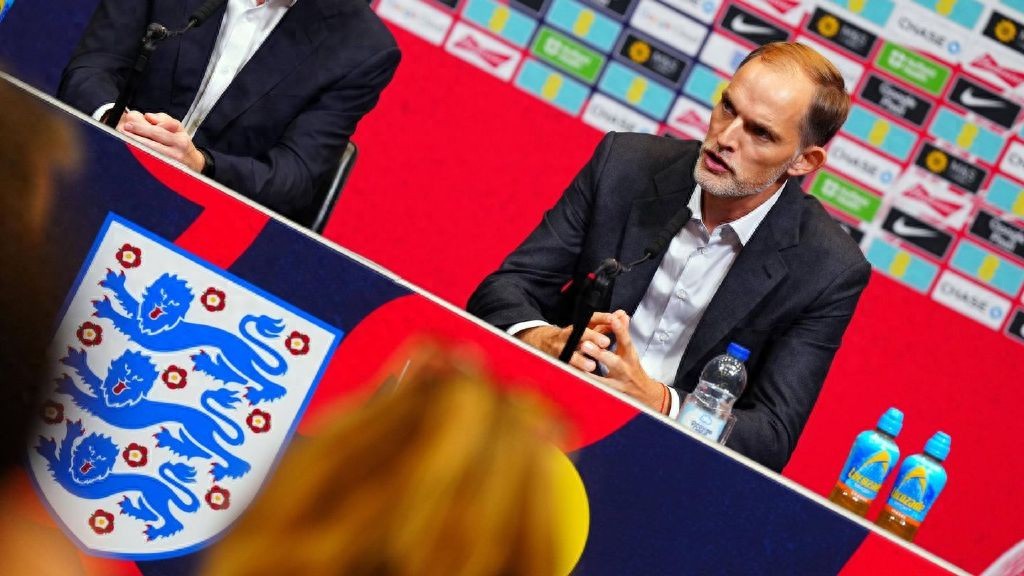New dress culture, new team culture

The reporter reported coldly Thomas Tuchel ushered in a new era for England, and the first thing the British media focused on was that Tuchel, who is a German, did not sing the English national anthem before the game.
Of course, in terms of history and tradition, it is a little urgent to get a German to integrate so thoroughly. In fact, the German coach has changed a lot since his day at Chelsea.
Thomas Tuchel's most striking change was in his dressing, with fashion expert Rochelle White believing that Tuchel's outfit on his Three Lions debut was a deliberate departure from his predecessor Gareth Southgate to convey a more casual and approachable attitude. A close-fitting trench coat and leg-hugging trousers matched his relatively frequent and intense sideline movements, but it was a touch of poise and respect for the England managerial position compared to what he was used to when he was in charge of Chelsea.
White believes Tuchel's attire is in line with current trends in menswear fashion, with better tailoring and a more sophisticated look and feel, but without sacrificing casualness. Unlike Southgate's image of a gentleman who almost always wears suits and leather shoes, Tuchel will find a balance between establishing a personal style and a more relaxed feel. As the game increases, White believes Tuchel will bring more style of dressing, as well as a desire to convey a different message through his image on the sidelines.
In addition to his casual and relaxed style of dressing, Tuchel has many more ways to create an intimate and harmonious team atmosphere for England. This does not contradict the harshness he shows to his players in training and games. In his opinion, a more united locker room is the only way to release the pressure of demanding training and competition. Tuchel has tried to bring the Premier League's dressing room management model to the England squad. For example, the coaching staff has dinner with the players during training, and it is a buffet, which is the dressing room culture of Premier League teams. In contrast, England under Gareth Southgate had a fixed one-hour meal time, and the coaching staff rarely ate with the players.
In charge of England's first training session, Thomas Tuchel pointed out that the underlying reason for England's failure to win the title was not 'tangible' tactics, but intangible togetherness. What he wants is not a friendly locker room, but a "fraternal" team cohesion during the game. He constantly hugs, high-fives, talks to the players, and encourages them to form cohesion among themselves during the game. As a typical example of the negative is last year's European Championship final, as the Spanish team took the initiative in the second half, the interaction of the English players on the field gradually decreased, and the morale was low, and naturally the situation could not be reversed.
Outside of high-intensity training and competition, Tuchel has brought a full range of 'relaxation' throughout the training period. Lunch and dinner times are more precise, but breakfast is more relaxed, allowing players to have different wake-up times. Table tennis and other relaxing competitive activities run from 10 a.m. to lunchtime, with the real training time delayed by five hours, closer to the kick-off time of the game. This means that there is plenty of time for intra-squad meetings before tactical training, with coaches leading tactical issues but encouraging players to speak up.
Tuchel wants England's players to be more intense and efficient on the pitch, more relaxed off the pitch and, most importantly, to build a 'winner' mentality and rebuild cohesion in the squad during the few training camps.


Wonderfulshortvideo

Raphinha goal. Raphinha ballon d’or. Yamal assist.



Raphinha has done it AGAIN!



Who is the most obscure Premier League top scorer of all time



JUNO WINS THE CORGI DERBY IS STYLE 🏆🐶



Avellino win Lega Pro girone C: Serie B! 👏🏻🤍💚🐺



Jockeys Chase Me Charlie serving chaos



Super speed tour of Lambourn 👏








 Links
Links
 Contact
Contact
 App
App


